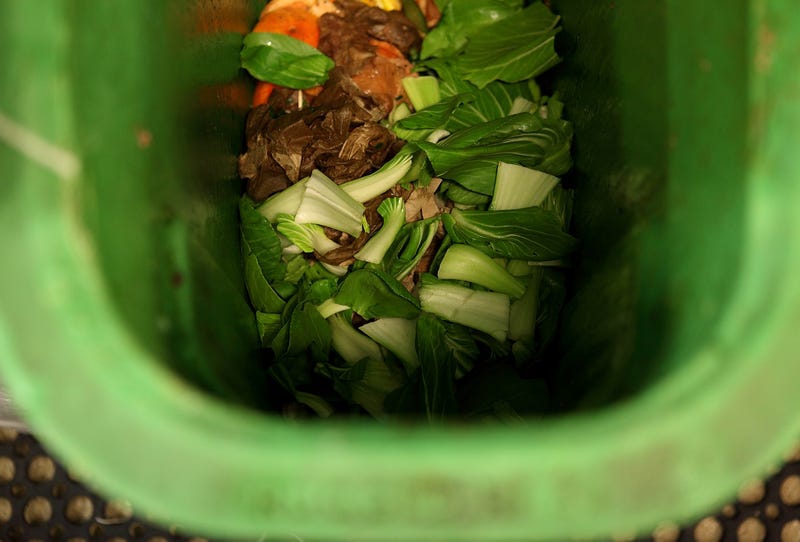
NEW YORK (1010 WINS) — The New York City Council passed a bill Thursday mandating New Yorkers to separate food waste from other trash to be composted.
The law will be implemented borough by borough, starting with Brooklyn and Queens in October, then the Bronx and Staten Island in March 2024 and finally Manhattan in October 2024.
The bill was part of a package of legislation dubbed the “Zero Waste Act” aimed at making New York City’s recycling and waste management system greener and efficient.
Food waste that is sent to landfills produces methane, a greenhouse gas that traps heat in the atmosphere at 25 times the rate of carbon dioxide. Composting food waste prevents the production of methane and produces fertilizer that can be used in gardening and agriculture.
Mayor Eric Adams had previously announced a citywide composting program that would have rolled out along a similar timeline to the Council’s legislation, but his program was voluntary, whereas the Zero Waste Act is mandatory.
It’s not clear whether Adams supports the legislation, but the bill passed the Council with a veto proof majority, rendering the mayor’s veto power moot.
Alongside the compost mandate, the Zero Waste Act included legislation to open e-waste recycling and organics collection centers in every borough. It also mandated the city eliminate all recyclables and organics from its waste system by 2030.
“With the passage of the Zero Waste Act, the New York City Council has taken a critical step forward to achieving the sustainable future New Yorkers deserve," said Council Speaker Adrienne Adams, who was one of the sponsors for the Zero Waste Act. "Through increased access to composting and recycling sites, all New Yorkers will now be able to participate more equitably in our collective goal of diverting all recyclables and organic waste from landfills and incinerators by 2023.”



